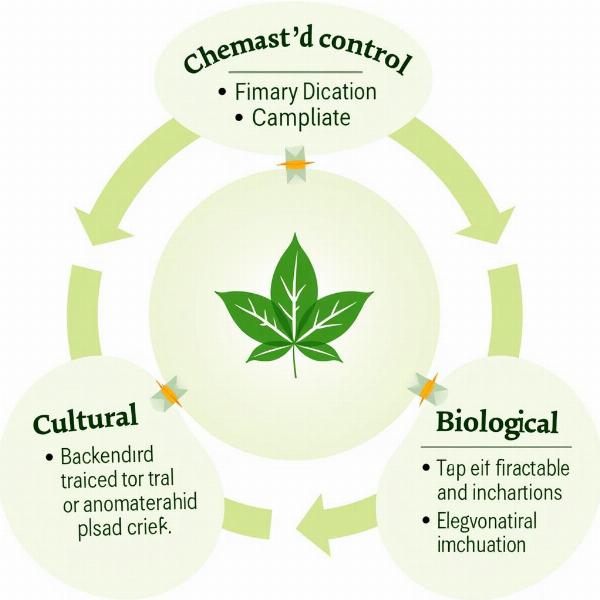Pest attack, a common concern for farmers across India, refers to the infestation and damage caused by unwanted organisms to crops. Understanding the meaning of “pest attack” in Hindi, and more importantly, how to manage it, is crucial for protecting your livelihood and ensuring food security. This article explores the various Hindi terms used for “pest attack,” the different types of pests, and effective strategies for controlling them.
What Does “Pest Attack” Mean in Hindi?
“Pest attack” can be translated into Hindi in several ways, depending on the specific context and the type of pest involved. Common terms include कीटों का हमला (keeton ka hamla), which literally translates to “attack of insects,” and कृषि कीट (krishi keet), meaning “agricultural pests.” Other terms may be used depending on the specific pest, such as चूहा (chooha) for rat, टिड्डी (tiddhi) for locust, or फंगस (fungus) for fungal diseases. Understanding these terms can help farmers communicate more effectively with agricultural experts and access relevant information.
Types of Pests and Their Impact
Pests can be broadly categorized into insects, rodents, diseases, and weeds. Each type poses unique challenges and requires specific control measures. Insects like aphids, borers, and locusts can cause significant damage by feeding on plant parts, transmitting diseases, or destroying entire fields. Rodents like rats and mice consume stored grains and damage crops in the field. Diseases caused by fungi, bacteria, and viruses can lead to crop failure and reduced yields. Weeds compete with crops for resources like water, nutrients, and sunlight, hindering their growth and development.
Recognizing the Signs of a Pest Attack
Early detection of a pest attack is critical for effective management. Look for signs such as holes in leaves, wilting plants, discoloration, unusual growth patterns, and the presence of pests themselves. Regular monitoring and scouting of fields can help identify infestations before they become widespread.
Effective Pest Control Strategies
Implementing a comprehensive pest management strategy is essential for minimizing crop losses. This can involve a combination of cultural, biological, and chemical methods. Cultural practices include crop rotation, proper irrigation, and sanitation to create an environment less conducive to pests. Biological control involves using natural enemies of pests, such as predators or parasites, to regulate their populations. Chemical control, while effective, should be used judiciously and as a last resort to avoid environmental damage and health risks.
How to Prevent Future Pest Attacks?
Preventing pest attacks requires proactive measures. This includes choosing pest-resistant varieties, practicing good sanitation, and implementing integrated pest management (IPM) strategies. IPM focuses on a holistic approach, combining various control methods to minimize pest populations while minimizing the use of harmful chemicals.
 Integrated Pest Management
Integrated Pest Management
Conclusion
Understanding “pest attack meaning in hindi” – कीटों का हमला (keeton ka hamla) or कृषि कीट (krishi keet) – is crucial for farmers in India. By recognizing the signs of infestation and implementing effective control strategies, farmers can protect their crops and ensure a healthy harvest.
FAQ
- What are the most common pests affecting crops in India? Common pests include aphids, borers, locusts, rats, and various fungal diseases.
- What is the best way to control pests? Integrated Pest Management (IPM) is the most effective and sustainable approach.
- Are chemical pesticides safe to use? Chemical pesticides should be used cautiously and only as a last resort, following recommended guidelines.
- How can I identify a pest attack early? Regular monitoring and scouting of fields can help identify infestations early.
- What are some natural ways to control pests? Biological control methods, such as using natural enemies of pests, can be effective.
- How can I prevent future pest attacks? Choosing pest-resistant varieties, practicing good sanitation, and implementing IPM strategies can prevent future infestations.
- Where can I get more information about pest control? Consult with local agricultural experts or extension services for specific recommendations.
Meaning-Hindi.in is your trusted partner for all your Hindi translation needs. We offer a wide range of translation services, including business and commercial document translation, certified and legal document translation, technical and user manual translation, website and localization translation, educational and academic document translation, express translation, and specialized translation. We pride ourselves on delivering accurate and culturally sensitive translations that meet the highest standards of quality. Contact us today at [email protected] or +91 11-4502-7584 to learn more about how Meaning-Hindi.in can help you bridge the language gap.